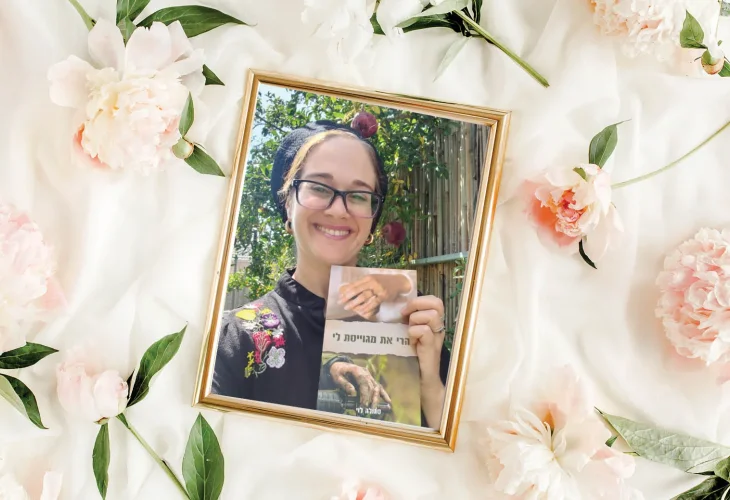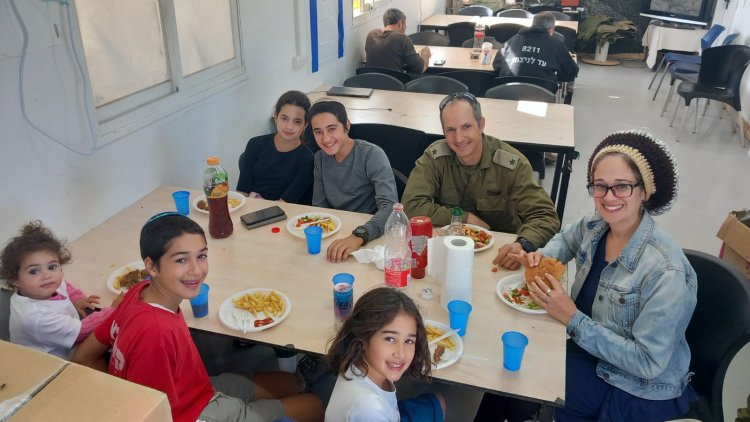Faith
The Hidden Battle of IDF Wives: A Story of Loneliness, Strength, and Unshakeable Faith
How one woman’s journey through fear, separation, and resilience reveals the untold reality behind Israel’s soldiers

"We were on the fifth day of our Sheva Brachot — a newly married, happy couple — when my husband received a message that he was needed in the army,” Segula Levy recounts, her voice revealing how difficult it still is to revisit those memories.
She is not speaking about the day of the Hamas attack, when hundreds of thousands of soldiers were drafted across Israel, but about events that happened years earlier, when she married her husband — a career soldier in the IDF.
“I knew he was committed to the army, but I had no idea what that really meant,” she says.
“I come from a family of new immigrants, and I had never seen up close what life looks like for families of soldiers. It always felt like something distant. And suddenly, before we even had time to settle into married life, they informed him he had to report to base.”
Segula vividly remembers the joint drive down to the Shizafon base near Eilat, where they parted without knowing for how long. “On the way back I drove as fast as I could,” she recalls. “I just wanted to escape. At one point police officers stopped me for speeding, gave me a ticket, and suspended my license for a month. I cried to them: ‘I’m five days after my wedding, I haven’t even changed my last name on my license yet!’ But it didn’t help. That day I lost both my license and my husband.”
 Visiting the base with Dad
Visiting the base with DadLonging, Anxiety, and Loneliness
For six years, her husband Aharon served as a career soldier, and during that time Segula learned to face challenges she never imagined.
“I fell into a world of longing and constant worry,” she explains. “I remember experiencing panic attacks and severe anxiety from fear for his safety — and the loneliness was crushing. At first I lived in university dorms with friends because it didn’t make sense to rent an apartment. It was depressing — being a married woman living with single girls. Later we moved into a small caravan on a hill in Mitzpe Yericho, but most of the week I was there alone. I barely functioned.”
It took time for her to understand that she wasn’t alone — that many women were living the same reality, though few talked about it.
Eventually she joined a group made up of women whose husbands served in the IDF. “We met once a week and learned Torah from the teachings of Rav Kook. Those meetings gave us enormous strength — from the gathering itself and from the Torah she taught.”
Through the group, Segula learned a new perspective: “I realized that it wasn’t just ‘my husband is in the army and I’m at home.’ We were both serving the Jewish people. It was a shared mission.”
Already then, she began writing a book about the experience.
Writing the Pain as It Is
“The writing wasn’t easy,” she admits. “I didn’t hide anything. I opened every painful point — coming home alone after major events, raising children alone, sitting at the Shabbat table alone, going through pregnancy with no one at home to help, and mainly… how to live with endless loneliness.”
“Joining the group truly eased the loneliness. And the Torah lessons empowered me. We learned about Rachel, the wife of Rabbi Akiva, who didn’t see her husband for many years — all for the sake of the Jewish people. I did not reach her level, of course, but I learned what it means to have a mission.”
In one lesson, the Rebbetzin taught that the Hebrew word חֹסֶן (strength) hints at Seder Nashim, the Talmudic order dealing with family — showing that true strength lies in the stability of family life.
“It shook me. Despite everything going on around us, the family unit is what remains strong.”
A trip to the Arch of Titus in Rome drove the point home. “At first you see the arch that tells of Rome’s ‘victory’ over the Jews. But then you see everything around it — the empire, the palaces, the stadiums — all rubble. And who remains? The Jewish people, back in their land after 2,000 years.”

Suddenly It Became Relevant Again
Although Segula began writing her book “Harei At Meguyeset Li” (“Behold, You Are Drafted to Me”) 13 years ago, it was published exactly two days before Simchat Torah 5784 — right before the war broke out.
“Who could have imagined how relevant it would become?” she asks. When the war began, her husband was drafted with his reserve unit and served 200 consecutive days.
“Suddenly I was back to the same reality — alone with the kids, barely speaking to him. And at the exact same time, boxes of books started arriving. I realized the book had been released at the perfect moment — when thousands of women were entering the same struggle I had lived through.”
Orders poured in — from mothers buying it for daughters, husbands buying it for wives, and even men reading it themselves.
Trauma in the Unit
Recently, her husband returned to reserve duty, and much of her fear sadly proved justified.
“Not long ago, a jeep in their unit hit an explosive. The driver, Evyatar Ben Yehuda, was killed, and the battalion commander, Yaakov David ben Yehudit Feiga, was critically injured. It was traumatic for the soldiers — and for us, the wives.”
Still, she says awareness has improved: “There are WhatsApp groups for reserve wives, organizations supporting us, and even an official IDF initiative. There is also the new ‘Reservists’ Wives Forum’ doing tremendous work.”
But, she emphasizes: “No matter how much is done — it’s never enough. The stronger the marriages and families remain, she says, the stronger the entire nation becomes.

